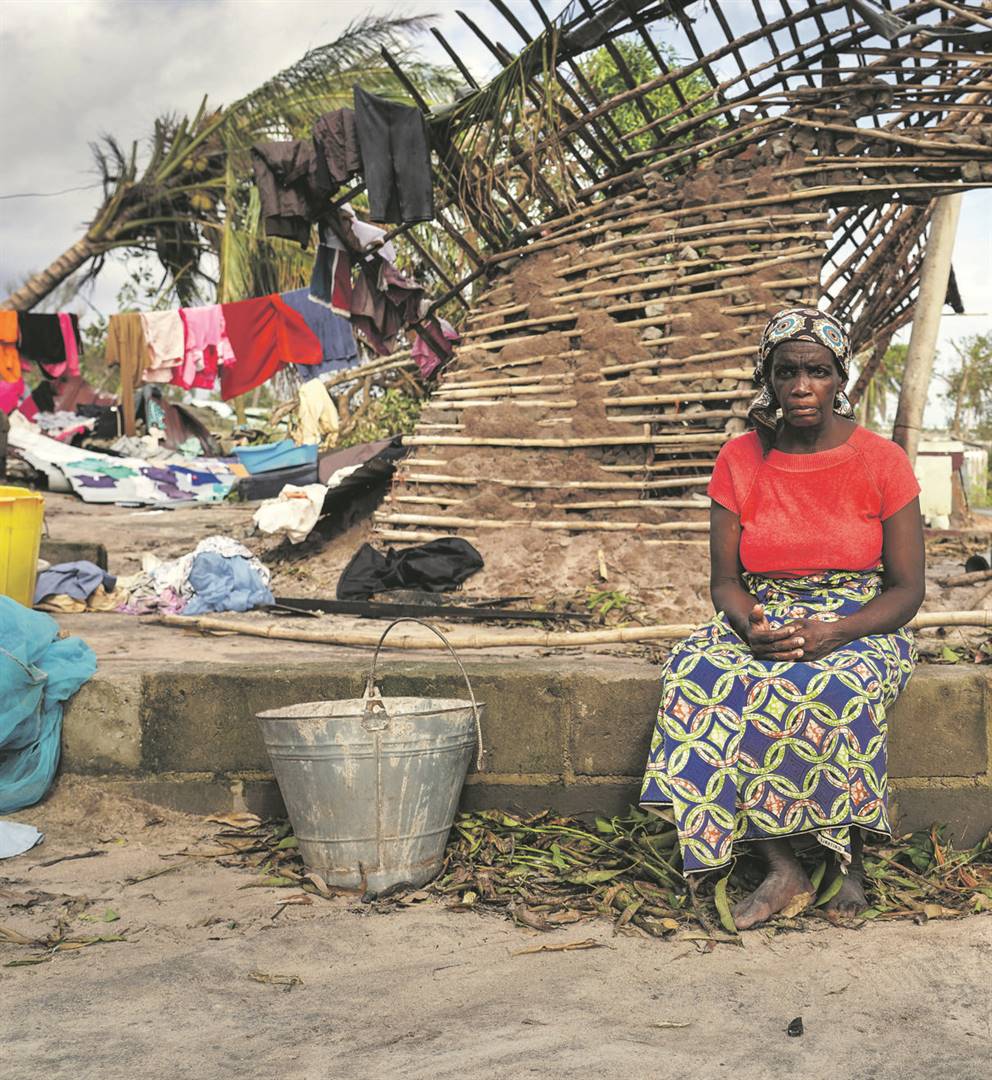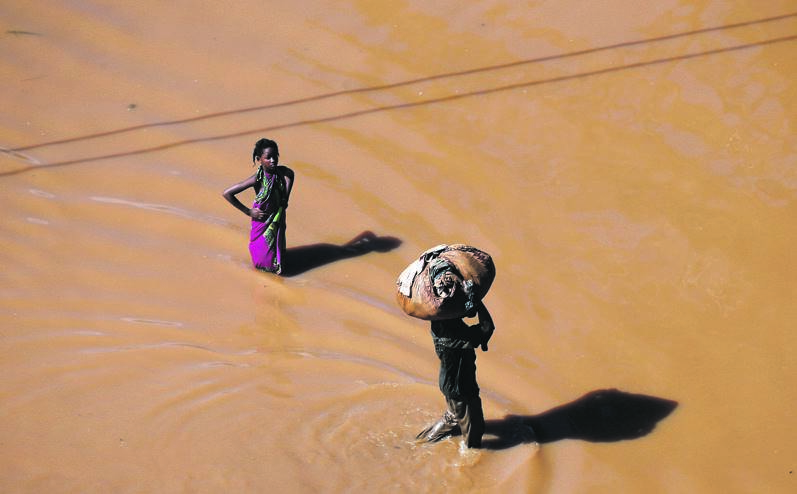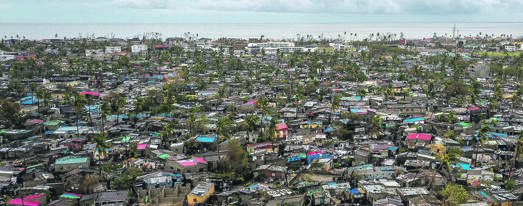
‘I grabbed the children and we hid under the kitchen table and the beds,” said 60-year-old Laurita Santos, who shares her four-room home with her eight grandchildren.
Santos is a native of Beira, the third-largest city in Mozambique.
It has borne the brunt of the destruction wreaked by Cyclone Idai, one of the biggest tropical cyclones ever recorded in the southern African region.
Last week, the port city, known for its warm temperatures and friendly, 500 000-strong population, was turned upside down when the deadly cyclone struck.
A staggering 90% of the city, once hailed as the hidden gem of Mozambique, was destroyed by battering winds and torrential rains.
Santos, who lives on the outskirts of the city in a zone villagers call Estofo, claims to have seen it all.
“This is the worst disaster to hit our town. The cyclone has really disrupted our lives,” she said yesterday while trying to pick up the pieces.
Last Thursday evening when Idai hit, Santos said the cyclone announced its arrival with strong winds.
When her corrugated iron roof started to tremble, she knew trouble was on the horizon.
Within hours, Cyclone Idai toppled homes, uprooted trees and left scores of people submerged in water.
Hundreds died as many areas became inaccessible from all the flooding and infrastructural damage.
Santos said her children started screaming when rain and wind speeds intensified. They wanted her to loosen her grip on them so that they could run out of the rattling house.
Instead, she said, she tightened her grip and soothed them with a prayer and a song.
Santos’ house was small, but she took pride in its decor and cleanliness. Now, all that is left is the remnants of a hut made out of wood and mud – it stands in a slanting form, like Italy’s Leaning Tower of Pisa.
Memories of Santos’ home lie scattered nearby. All the petite woman can do is hope that the sun will dry the meagre possessions she and her family have left.
For the past 10 years on Sundays, Santos would open her home to people in her community.
Anything from 20 to 60 people would gather in her yard to worship at a church called Igreja Evangelica Palavra Da Vida.
Although Santos did not lead the ministry, she was the chief coordinator. She wonders now about the logistics involved in ensuring that the service takes place today.
“People will have to stand here,” she said, gesturing to an unoccupied area in front of the old church.
The extent of the devastation experienced by the people in Beira is beyond words. The city has no electricity, running water or network services, with hospitals and schools having been destroyed.
Stagnant water, decomposing bodies and the lack of sanitation are immediate concerns, as is the lack of access to food and water.
Still, people are resilient, determined to pick up the pieces as soon as possible and salvage what they can.
But even if you have money in your account to buy the goods you need, queues at the ATMs are long – an hour, on average.
This has to be done during the day because at nightfall thieves lurk around the corners, ready to strike.
Electronic payments cannot be processed because of the patchy network.
Everything is damp as the humidity and frequent rain showers continue to delay the drying process.
In a small village called Chota, all that 21-year-old Esperança Americo wants is clean and easily accessible drinking water.
She worries that the lack of water will affect the health of her one-year-old son, Silva.
And with good reason: on Friday, humanitarian group the International Federation of the Red Cross and Red Crescent Societies noted an increase in malaria, while relief organisations reported cases of cholera.
To wash her family’s clothes, Americo uses water from a mini dam that has formed in her backyard. For drinking, her husband fetches water from a well, located a few kilometres away from the airport in Beira.
When Idai hit, Americo, her husband and Silva evacuated their three-room home as it shook with the wind. They fled to a neighbour’s place.
More than a week after the storms hit, they cannot move back as their home has no roof. As a result, Americo has had to move her furniture to drier land. “I asked my sister-in-law to store my fridge, TV and chairs.”
Her sister-in-law also lives in Beira but in Macurungo. Her home was not as badly affected as Americo’s.
“When we saw on the news that the storm was coming, we did not think it would be so bad,” said Americo, echoing what most locals thought.
At a media briefing this week, Mozambique’s minister of land and environment, Celso Correia, said the death toll stood at 417.
The situation remains critical. Crockery, cutlery, suitcases, socks and shoes litter the streets – a constant reminder of how people’s lives have been disrupted.
Generations of accrued wealth were wiped out within minutes.
Beira has been the economic hub of many regions. For decades, the port city has linked countries such as Zimbabwe and Zambia with the rest of the world.
Although the city is bruised, there are glimmers of hope.
Every third or fourth home has a ladder hoisting a man as he tries to repair a broken window or a cracked roof.
Women sweep the streets and young boys place broken branches into wheelbarrows, which makes navigating the streets a bit easier.
Most importantly, children in the village are laughing and playing, which makes dealing with the tragedy less difficult.




 Publications
Publications
 Partners
Partners










